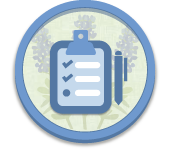If you’ve been told by your dentist that you have a cavity, but you’ve never experienced any symptoms, you’re not alone. Most people can’t feel they have a cavity until they’re in a more severe state. Many people search for a definitive sign that they are developing a cavity, but the fact is there really isn’t one. Every smile is uniquely different and you may not always know when those pesky cavities are on the rise. We’ve compiled a bit of information on cavities to help you feel more informed.
When Cavities Begin to Hurt
A cavity first affects the enamel of your tooth, which has no nerves. Therefore, you won’t feel any pain in a cavity’s earliest stages. It is not until the cavity has reached the more sensitive portions of your teeth that you may begin to feel some pain or sensitivity.
What Triggers Cavity Pain
Your food and beverages are the largest triggers of cavity pain. Any extremely hot or cold foods and drinks can cause tooth pain when you have a cavity. Aside from temperature, particularly sweet foods may cause your tooth to ache as well.
What to Do When You Have a Cavity
If you suspect you have a cavity, make an appointment at Wildflower Dental & Orthodontics right away. It is much easier to correct a cavity in its early stages than when it’s already progressed. If your cavity is small, we may decide to perform a small filling. If the decay is in a more severe state, further actions may be required, such as root canal therapy or a tooth extraction.
How to Prevent Cavities
Maintaining a consistent dental health routine is the best way to avoid cavities. Brushing twice daily and flossing at least once per day is a great start. Consider incorporating an electric toothbrush, a water flosser, and/or an alcohol-free mouthwash.
The best way to detect a cavity is to visit our office every six months!
Schedule Your Checkup




